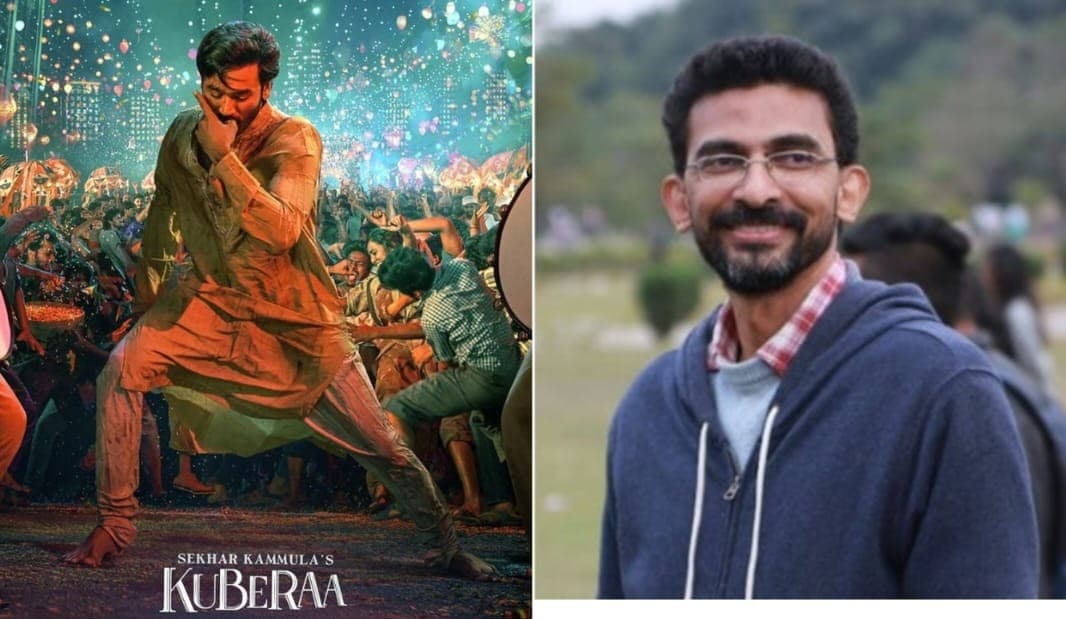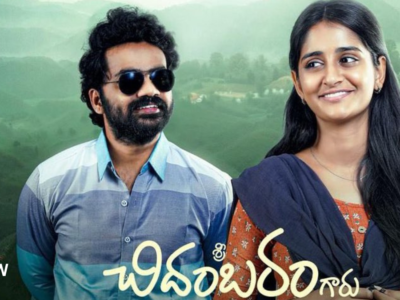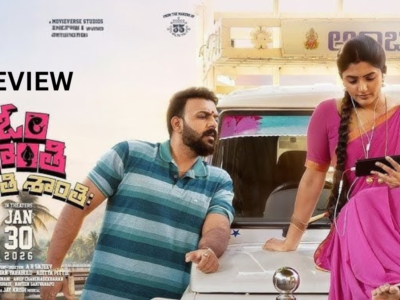Kuberaa Review: Kuberaa is not a story about crime and law, it’s a philosophical conversation about money and humanity
Kubera isn’t a typical good-versus-evil story. There’s no clever hero outsmarting a villain, no big win or clear justice. Instead, it takes a philosophical path. A beggar rises above a rich man, not through tricks, but through how life unfolds. Sekhar Kammula isn’t giving answers; he wants to open a quiet, uneasy conversation about wealth, poverty, and the way we accept both.
Kuberaa Review
Sekhar Kammula takes a bold step away from his usual romantic films with Kubera. He’s said it before in interviews – he doesn’t want to be stuck in one genre – and this film proves it. Kubera is not your typical crime story. It’s about a massive financial scam, yes, but it’s told through different eyes and in a philosophical manner. More than just a thriller, it’s a slow, thoughtful journey into the way humans behave when money and morality clash.
The film is slow-paced, and that’s deliberate. Sekhar Kammula allows scenes to breathe. He wants the audience to take it all in, to reflect. Though, like in many of his past films, there are some editing hiccups that stand out. Still, what the film loses in pace, it gains in depth. This slow narrative gives the feel of those of classic movies.
Dhanush and Nagarjuna shine. Truly. Quite literally. This is not just star power at play – their performances as Deva Kalam and Deepak are so good that we forget who’s playing them. We just see the characters. That’s Kammula’s strength as a director. He gets actors to give their most honest, grounded performances. Even Jim Surbh and Sayaji Shinde feel perfectly placed. Sayaji especially, feels like he’s finally found the right role with the right dialect.
Rashmika, though, feels underused. She brings charm, some comic relief, and supports the story, but you can’t help but wish there was more of her.
This is not a film about good vs evil or smart vs dumb. It’s not the hero-tricks-the-villain kind of story. The climax doesn’t give you a winner in the usual sense. It’s philosophical. How does a beggar win over a rich man, but not through cleverness or violence. It’s more about what the director wants to talk about. It opens a space for thought, a space that makes you uncomfortable, especially around the ideas of wealth and poverty, Kammula wants to open an uncomfortable conversation which he usually strives for in his movies.
From the very beginning, the film sets the tone with political satire, poking at how governments handle subsidies and even touches religion with a sharp edge. It’s bold. Honest. Raw.
Devi Sri Prasad’s music and background score are accurate for every scene and situation and are right where they need to be, always lifting the moment. The visuals too, the colour palette used, the settings, every frame feels like it was carefully painted, which makes sense since Kammula has always admired Bapu. The influence is felt. It’s like watching a novel unfold, chapter by chapter, each with something to reflect on.
The actor who plays Kelu deserves special mention. His performance, especially the fear in his face, is heartbreaking.
Kuberaa isn’t about laws or courtrooms. It’s about people. About how we behave when faced with money, power, and desperation. Sekhar Kammula hasn’t just made a film. He’s started a conversation.
Kammula is known to be a budget-conscious director, and Kuberaa reflects that balance – visually rich, but never wasteful. Every rupee feels spent with reason.
And most of all, Kuberaa is original. True to itself.
















